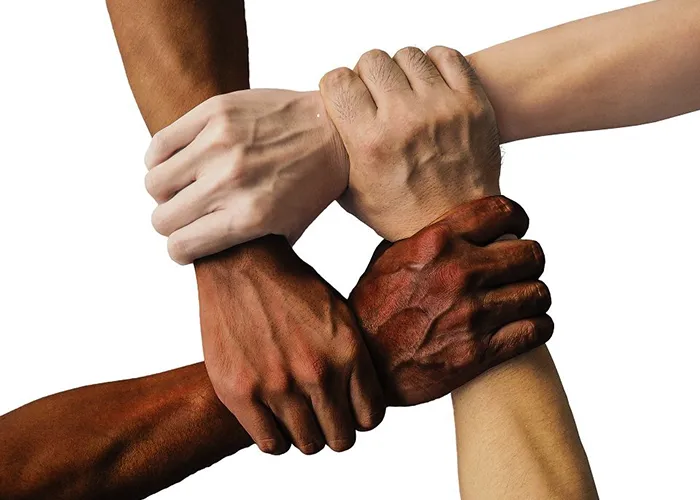Editorial – volume02 Issue08
The Week That Speaks: Faith, Wisdom, and the Fight for Justice
Introduction
In a world that often feels fragmented and uncertain, the role of Islamic leaders in guiding their communities with wisdom, compassion, and justice has never been more critical. This week’s edition of Friday Bulletin reflects on a series of significant occasions that offer profound lessons for our time. From commemorating the contributions of great Islamic scholars to reflecting on global calls for justice and cultural preservation, these events remind us of the timeless principles of Islam and their relevance in addressing contemporary challenges. Let us delve into these occasions, draw inspiration from their messages, and translate these lessons into actionable steps for our communities.
The Demise of Ibn Shahrashub: Preserving the Legacy of the Ahlul Bayt (AS)
Ibn Shahrashub, a revered Shia scholar, dedicated his life to documenting the virtues of the Ahlul Bayt (AS) through his seminal work, Manaqib Aal Abi Talib. His contributions underscore the importance of preserving and disseminating the teachings of the Prophet’s family, who serve as beacons of guidance for Muslims. In a time when misinformation and distortion of Islamic teachings are rampant, Ibn Shahrashub’s work reminds us of the need to uphold the truth and educate others about the profound legacy of the Ahlul Bayt (AS).
Message for Muslims in the West:
In the West, where cultural and religious identities are often challenged, Muslims must strive to preserve and share the authentic teachings of Islam, particularly the legacy of the Ahlul Bayt (AS), as a source of spiritual and moral guidance.
Practical Challenge:
Organise a study circle or lecture series focusing on the virtues of the Ahlul Bayt (AS) using Ibn Shahrashub’s works as a reference. Encourage participants to reflect on how these teachings can address modern-day dilemmas.
Commemoration of Khwaja Nasir al-Din al-Tusi: Reviving the Spirit of Intellectual Inquiry
Khwaja Nasir al-Din al-Tusi, a polymath of the Islamic Golden Age, exemplified the harmonious integration of faith and reason. His contributions to philosophy, mathematics, and astronomy highlight the Islamic tradition’s encouragement of intellectual pursuit and the pursuit of knowledge. In an era where science and religion are often pitted against each other, al-Tusi’s legacy reminds us that true knowledge is a means of understanding Allah’s creation and fulfilling our role as His stewards on Earth.
The Quran encourages seeking knowledge:
“قُلْ هَلْ يَسْتَوِي الَّذِينَ يَعْلَمُونَ وَالَّذِينَ لَا يَعْلَمُونَ“
“Say, ‘Are those who know equal to those who do not know?’” (Quran 39:9)
This verse underscores the elevated status of those who seek knowledge, a principle embodied by al-Tusi.
Message for Muslims in the West:
Muslims in the West should actively engage in intellectual and scientific endeavours, demonstrating that Islam is a faith that values reason, inquiry, and the betterment of humanity.
Practical Challenge:
Host a workshop or seminar on the contributions of Muslim scholars like al-Tusi to modern science and philosophy, inspiring young Muslims to pursue excellence in their academic and professional fields.
Martyrdom of Ayatollah Sayyid Mahdi Hakim: A Call to Uphold Justice
Ayatollah Sayyid Mahdi Hakim’s martyrdom stands as a testament to his unwavering commitment to justice and resistance against oppression. His life reminds us that the struggle for justice is a core Islamic value, one that requires courage, sacrifice, and steadfastness. In a world rife with injustice, his legacy calls upon Muslims to stand firm in the face of tyranny and to advocate for the rights of the oppressed.
The Quran commands:
“يَا أَيُّهَا الَّذِينَ آمَنُوا كُونُوا قَوَّامِينَ بِالْقِسْطِ“
“O you who have believed, be persistently standing firm in justice.” (Quran 4:135)
This verse reinforces the duty of Muslims to uphold justice, even when it is difficult or dangerous.
Message for Muslims in the West:
Muslims in the West must actively advocate for justice, whether in their local communities or on a global scale, and support efforts to combat oppression and inequality.
Practical Challenge:
Initiate a campaign or project addressing a local or global injustice, such as raising awareness about human rights violations or supporting marginalised communities.
World Day of Social Justice: Islam’s Vision for a Fair Society
The World Day of Social Justice aligns with Islam’s emphasis on fairness, equity, and compassion. Islam calls for the establishment of a society where the rights of all individuals are protected, and where the vulnerable are cared for. This day serves as a reminder of our collective responsibility to create a world that reflects these values.
The Quran states:
“إِنَّ اللَّهَ يَأْمُرُ بِالْعَدْلِ وَالْإِحْسَانِ“
“Indeed, Allah commands justice and excellence.” (Quran 16:90)
This verse encapsulates the Islamic vision of a just and compassionate society.
Message for Muslims in the West:
Muslims in the West should lead by example in promoting social justice, whether through charitable work, advocacy, or community service, demonstrating the practical application of Islamic principles.
Practical Challenge:
Organise a community service event, such as a food drive or charity fundraiser, to support those in need and promote social justice within your local area.
International Mother Language Day: Celebrating Linguistic Diversity
International Mother Language Day highlights the importance of preserving linguistic and cultural diversity, a value deeply rooted in Islamic teachings. Islam recognises the diversity of languages and cultures as a sign of Allah’s wisdom and encourages the preservation of knowledge and heritage.
The Quran says:
“وَمِنْ آيَاتِهِ خَلْقُ السَّمَاوَاتِ وَالْأَرْضِ وَاخْتِلَافُ أَلْسِنَتِكُمْ وَأَلْوَانِكُمْ“
“And of His signs is the creation of the heavens and the earth and the diversity of your languages and your colours.” (Quran 30:22)
This verse celebrates the diversity of human expression as a divine blessing.
Message for Muslims in the West:
Muslims in the West should take pride in their linguistic and cultural heritage, using it as a means to connect with others and enrich their communities.
Practical Challenge:
Host a cultural event or language workshop to celebrate and teach your native language, fostering a sense of pride and connection among community members.
news via inbox
Subscribe to the newsletter.




